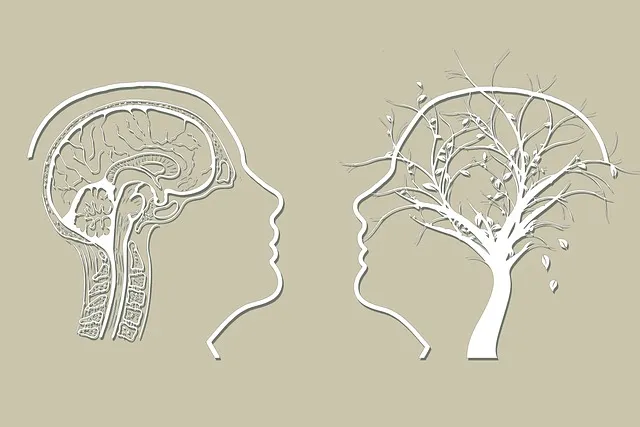Substance abuse, a complex issue affecting all demographics, requires a multifaceted approach according to experts at the Kaiser Permanente mental health center Aurora. They highlight its chronic nature and wide-ranging risks, emphasizing the link between mental health and substance abuse as self-medication cycles. Through early intervention, evidence-based programs, community support, and mental wellness strategies like Mindfulness Meditation, Kaiser Permanente Aurora aims to break these cycles, reduce risk factors, and foster overall mental well-being, using their resources and services to create a supportive environment for long-term recovery.
Substance abuse poses significant risks to individuals and communities, but proactive strategies can mitigate these dangers. This article explores comprehensive risk reduction techniques, focusing on the unique approach of Kaiser Permanente Mental Health Center in Aurora. We delve into understanding the complex nature of substance abuse, its connection with mental health, and the importance of early intervention. Additionally, we highlight evidence-based programs and community support systems that foster long-term recovery, drawing insights from Kaiser Permanente’s successful model.
- Understanding Substance Abuse and Its Risks
- The Role of Mental Health in Substance Abuse Prevention
- Strategies for Early Intervention at Kaiser Permanente Aurora
- Evidence-Based Programs and Treatments for Risk Reduction
- Community Support and Ongoing Care for Long-Term Recovery
Understanding Substance Abuse and Its Risks

Substance abuse is a complex issue that involves the excessive or uncontrolled use of drugs and alcohol, leading to significant harm. It’s crucial to understand this disorder as a chronic condition that affects both physical and mental health, impacting individuals across all demographics. At Kaiser Permanente mental health center Aurora, experts emphasize that risks associated with substance abuse can range from acute injuries to long-term damage to vital organs and cognitive functions.
The challenges of addressing substance abuse stem from its multifaceted nature. It often stems from underlying psychological issues such as depression or anxiety, exacerbated by environmental factors like peer pressure or stress. Cultivating compassion towards those struggling with addiction is essential, alongside promoting positive thinking and practices that foster mindfulness, such as Mindfulness Meditation and Compassion Cultivation Training. These strategies can play a pivotal role in risk reduction, helping individuals develop healthier coping mechanisms and make more positive choices regarding their mental health and well-being.
The Role of Mental Health in Substance Abuse Prevention

The connection between mental health and substance abuse is a critical aspect often overlooked in prevention strategies. According to research conducted by Kaiser Permanente Mental Health Center Aurora, individuals struggling with mental health issues are at a significantly higher risk of developing substance use disorders. This interconnection stems from the fact that many people turn to drugs or alcohol as a form of self-medication to cope with symptoms of depression, anxiety, or trauma. For instance, a person battling chronic stress may start using substances to alleviate their symptoms temporarily, setting them on a path towards dependency and addiction.
Addressing mental health is, therefore, an integral part of comprehensive substance abuse prevention efforts. The Mental Wellness Podcast Series Production can play a significant role in raising awareness about this issue. Additionally, mental health professionals should undergo thorough risk assessments (Risk Assessment for Mental Health Professionals) to identify potential risks and provide adequate support. Furthermore, advocacy and policy analysis through Mental Health Policy Analysis and Advocacy can ensure that resources and services are accessible, helping to reduce the burden of substance abuse and promote overall Mental Wellness.
Strategies for Early Intervention at Kaiser Permanente Aurora

Early intervention plays a pivotal role in mitigating risks associated with substance abuse. Kaiser Permanente Aurora, renowned for its comprehensive mental health services, employs innovative strategies to recognize and address potential issues at an early stage. Their approach focuses on empowering individuals before substance abuse becomes a severe problem.
One effective method is integrating confidence-boosting activities and self-awareness exercises into routine check-ups, allowing patients to actively participate in their mental wellness journey. By fostering open communication and encouraging individuals to explore their emotions, these exercises can deter potential users from embracing harmful substances as coping mechanisms. This proactive measure not only reduces the risk of substance abuse but also paves the way for improved overall mental health at the Kaiser Permanente Aurora mental health center.
Evidence-Based Programs and Treatments for Risk Reduction

Evidence-based programs and treatments play a pivotal role in Kaiser Permanente mental health center Aurora’s approach to risk reduction for substance abuse. These strategies are designed to address the complex nature of addiction by targeting underlying mental health issues, such as depression or anxiety, often co-occurring with substance abuse disorders. By integrating evidence-based practices, the center offers specialized care tailored to individual needs, proven effective in promoting long-term recovery.
One such approach involves Mental Illness Stigma Reduction Efforts, aimed at creating a supportive environment where individuals feel comfortable seeking help without fear of judgment. Additionally, Healthcare Provider Cultural Competency Training equips staff with the skills to understand and cater to diverse patient backgrounds, ensuring inclusive care. Stress Management Workshops Organization within the center further empowers patients with tools to cope with stressors that may trigger substance abuse relapses.
Community Support and Ongoing Care for Long-Term Recovery

Community support plays a pivotal role in long-term recovery from substance abuse. Programs like those offered by Kaiser Permanente mental health center Aurora provide a robust network of care, ensuring individuals have access to ongoing emotional well-being promotion techniques and crisis intervention guidance. These centers often offer group therapy sessions, peer support groups, and individualized counseling, fostering a sense of community and accountability vital for sustained recovery.
The integration of mental illness stigma reduction efforts within these programs is significant. By creating safe spaces where individuals feel understood and supported, Kaiser Permanente and similar facilities encourage open discussions about mental health challenges. This shift in perspective can lead to earlier interventions and more effective treatment plans, ultimately enhancing the chances of long-term recovery for those struggling with substance abuse.
Substance abuse poses significant risks, but with comprehensive strategies, these challenges can be mitigated. By addressing mental health issues, implementing evidence-based programs, and fostering community support, as seen in initiatives at the Kaiser Permanente mental health center Aurora, individuals have a better chance of overcoming addiction and achieving long-term recovery. Early intervention and ongoing care are key to reducing risks and improving overall well-being.






